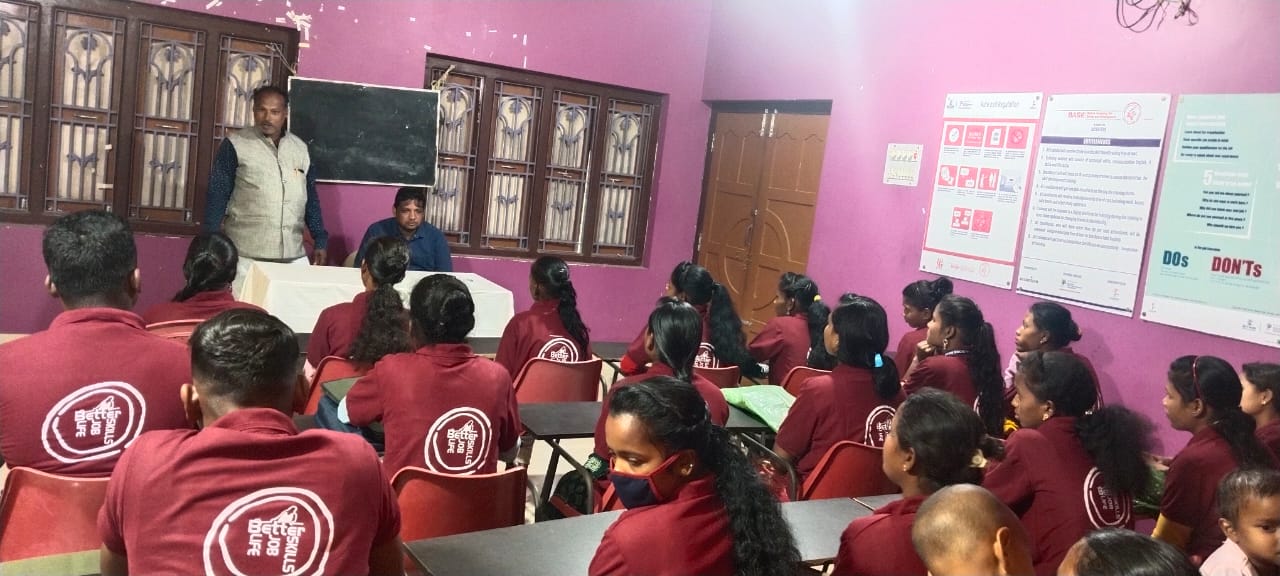Guest Lecture of Batch - 6 Organic Grower Job Role, Skills to Succeed 24-25
23 Jan 2025

On January 23, 2025, Don Bosco Tech, Thakurmunda, became a hub of inspiration and learning as Batch 6 of Organic Growers gathered for an enriching guest lecture that left a lasting impact. The session welcomed Mr. Harekrushna Tripathy, Chief Reporter of Kanaka TV Odisha, alongside esteemed trainers Mr. Abhimanyu Behera, Domain Trainer, and Mrs. Rasmita Behera, Support Domain Trainer, in a thought-provoking discussion on the future of organic farming.
The atmosphere was charged with enthusiasm as Mr. Abhimanyu Behera set the stage with a warm introduction, inviting Mr. Tripathy to share his wealth of knowledge. Known for his deep insights into sustainable agriculture, Mr. Tripathy took the trainees on a journey through the core principles of organic farming, emphasizing its crucial role in restoring ecological harmony.
With an engaging narrative, he explored the significance of soil health, likening it to the lifeblood of organic farming. He illustrated how natural techniques such as composting, crop rotation, and green manuring could rejuvenate soil fertility, making it more resilient against depletion. The discussion expanded into biodiversity, where he painted a vivid picture of farms as thriving ecosystems, enriched by diverse crops and livestock that work in harmony to maintain ecological balance.
Mr. Tripathy delved into the art of natural pest control, explaining how farmers could harness nature’s own mechanisms—introducing beneficial insects, using herbal repellents, and employing protective barriers—to manage pests without resorting to synthetic chemicals. His perspective on organic farming challenges was equally compelling. While acknowledging concerns such as labor-intensive practices and initially lower yields, he reassured the trainees that perseverance and smart planning could turn these hurdles into opportunities for long-term sustainability and profitability.
One of the most eye-opening segments of the session was Mr. Tripathy’s discussion on government initiatives supporting organic farming. He provided valuable guidance on navigating these schemes, offering practical advice on grants, subsidies, and training programs available to aspiring organic farmers. His words infused the trainees with a renewed sense of confidence, reinforcing the idea that the transition to organic methods is not just an idealistic pursuit but a viable, well-supported reality.
As the lecture drew to a close, an interactive Q&A session brought forward compelling queries from the trainees, each met with Mr. Tripathy’s thoughtful responses. His passion for organic farming was evident in every answer, making the discussion not just informative but deeply inspiring.
The event concluded on a heartfelt note with Mrs. Rasmita Behera delivering a warm vote of thanks, expressing immense gratitude for Mr. Tripathy’s invaluable insights. The day was not just an academic session but a milestone for Batch 6, leaving them with newfound knowledge, a sense of purpose, and a deeper commitment to the principles of organic farming. As they walked away from the session, they carried with them a vision—one where agriculture thrives in harmony with nature, ensuring a healthier and more sustainable future for generations to come.